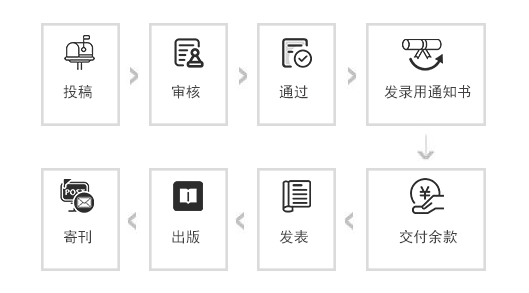Critical Discourse Studies



- 中国知网数据库(CNKI)全文收录期刊
- 中国核心期刊(遴选)数据库收录期刊
- 中国万方数据库全文收录期刊
- 中国维普科技期刊数据库收录期刊
- 中国龙源数据库全文收录期刊
- 中国期刊网全文收录期刊



中国高校科技期刊研究会第9次会员代表大会在北京召开,中宣部出版局副局长张怀海、教育部科学技术与信息化司一级巡视员张国辉等领导出席会议并发表..
英文简介:Critical Discourse Studies is an interdisciplinary journal for the social sciences. Its primary aim is to publish critical research that advances our understanding of how discourse figures in social processes, social structures, and social change. Critical Discourse Studies has been established in response to the proliferation of critical discourse studies across the social sciences and humanities. We will consider for publication papers that meet the needs of scholars in diverse disciplines and areas of study which develop critical perspectives on the relationship between discourse and social dynamics. Relevant areas and disciplines include: anthropology, communication, linguistics, sociology, politics, political economy, education, psychology, media studies, geography, urban studies, cultural studies, management studies, literary studies, history, technology studies, legal studies, philosophy, gender studies, migration studies, ethnic studies and others. We also welcome papers which connect critical academic research with practical concerns and agendas, including those of activist and grassroots political movements. The scope of critical discourse studies is not limited to linguistic studies, or articles that are primarily empirical or analytical. Critical examination of non-linguistic phenomena that take a significant discourse orientation, as well as theoretical and methodological papers that advance critical understandings of discursive phenomena, are welcomed. Recognising the diversity, depth, and history of scholarship in the growth of critical discourse studies, no particular theoretical, disciplinary, or methodological "schools" or paradigms will be privileged over others in the selection of papers for publication. The primary criteria for publication are originality, scholarly rigor, coherence of argument, relevance and timeliness of research. Critical Discourse Studies is an international and interdisciplinary journal. The membership of its advisory board reflects the cultural, geographical, theoretical, and disciplinary diversity of the journal and its readership. Critical Discourse Studies encourages contributions from both new and established scholars. The journal recognises that the new and rapidly changing social relations of the current age call for new approaches to understanding the waves of change that continue to impact upon social, political, economic, and cultural formations. Therefore the editors strongly encourage the submission of papers that advance new approaches and new understandings that bridge disciplinary and cultural boundaries. Critical Discourse Studies aims to be accessible. It aims for papers that are written clearly, explain key terms and concepts in an accessible way for readers at many levels, and recognise the needs and interests of its diverse community of readers.中文简介:(来自Google、百度翻译)《批评性话语研究》是一份面向社会科学的跨学科期刊。它的主要目的是发表批判性研究,促进我们对话语如何在社会过程、社会结构和社会变革中发挥作用的理解。 批评性话语研究是针对批评性话语研究在社会科学和人文科学领域的扩散而建立的。我们将考虑发表满足不同学科和研究领域学者需求的论文,这些论文将对话语和社会动态之间的关系形成批判性的观点。相关领域和学科包括:人类学、传播学、语言学、社会学、政治学、政治经济学、教育学、心理学、媒体研究、地理学、城市研究、文化研究、管理学、文艺学、历史学、技术学、法学、哲学、性别研究、移民研究、民族研究等。我们也欢迎将批评性学术研究与实践问题和议程,包括活动人士和基层政治运动的问题联系起来的论文。 批评性话语研究的范围并不局限于语言学研究,也不局限于以实证或分析为主的文章。欢迎对具有重要语篇导向的非语言现象进行批判性研究,以及对语篇现象提出批判性理解的理论和方法论文。 由于认识到批评性话语研究成长过程中学术的多样性、深度和历史,任何特定的理论、学科或方法论“学派”或范式在选择发表论文时都不会比其他学派享有特权。出版的主要标准是原创性、学术严谨性、论点的连贯性、相关性和研究的及时性。 《批评性话语研究》是一份国际性、跨学科的期刊。其咨询委员会的成员反映了该杂志及其读者的文化、地理、理论和学科的多样性。 批评性话语研究鼓励新老学者的贡献。期刊认识到,当今时代迅速变化的社会关系需要新的方法来理解持续影响社会、政治、经济和文化形态的变革浪潮。因此,编辑们强烈鼓励提交能够促进新方法和新理解的论文,以便在学科和文化边界之间架起桥梁。 批评性话语研究的目的是让人容易理解。它的目标是写得清楚,以通俗易懂的方式解释关键术语和概念,并认识到不同读者群体的需要和兴趣。










英文简介:Critical Discourse Studies is an interdisciplinary journal for the social sciences. Its primary aim is to publish critical research that advances our understanding of how discourse figures in social processes, social structures, and social change. Critical Discourse Studies has been established in response to the proliferation of critical discourse studies across the social sciences and humanities. We will consider for publication papers that meet the needs of scholars in diverse disciplines and areas of study which develop critical perspectives on the relationship between discourse and social dynamics. Relevant areas and disciplines include: anthropology, communication, linguistics, sociology, politics, political economy, education, psychology, media studies, geography, urban studies, cultural studies, management studies, literary studies, history, technology studies, legal studies, philosophy, gender studies, migration studies, ethnic studies and others. We also welcome papers which connect critical academic research with practical concerns and agendas, including those of activist and grassroots political movements. The scope of critical discourse studies is not limited to linguistic studies, or articles that are primarily empirical or analytical. Critical examination of non-linguistic phenomena that take a significant discourse orientation, as well as theoretical and methodological papers that advance critical understandings of discursive phenomena, are welcomed. Recognising the diversity, depth, and history of scholarship in the growth of critical discourse studies, no particular theoretical, disciplinary, or methodological "schools" or paradigms will be privileged over others in the selection of papers for publication. The primary criteria for publication are originality, scholarly rigor, coherence of argument, relevance and timeliness of research. Critical Discourse Studies is an international and interdisciplinary journal. The membership of its advisory board reflects the cultural, geographical, theoretical, and disciplinary diversity of the journal and its readership. Critical Discourse Studies encourages contributions from both new and established scholars. The journal recognises that the new and rapidly changing social relations of the current age call for new approaches to understanding the waves of change that continue to impact upon social, political, economic, and cultural formations. Therefore the editors strongly encourage the submission of papers that advance new approaches and new understandings that bridge disciplinary and cultural boundaries. Critical Discourse Studies aims to be accessible. It aims for papers that are written clearly, explain key terms and concepts in an accessible way for readers at many levels, and recognise the needs and interests of its diverse community of readers.中文简介:(来自Google、百度翻译)《批评性话语研究》是一份面向社会科学的跨学科期刊。它的主要目的是发表批判性研究,促进我们对话语如何在社会过程、社会结构和社会变革中发挥作用的理解。 批评性话语研究是针对批评性话语研究在社会科学和人文科学领域的扩散而建立的。我们将考虑发表满足不同学科和研究领域学者需求的论文,这些论文将对话语和社会动态之间的关系形成批判性的观点。相关领域和学科包括:人类学、传播学、语言学、社会学、政治学、政治经济学、教育学、心理学、媒体研究、地理学、城市研究、文化研究、管理学、文艺学、历史学、技术学、法学、哲学、性别研究、移民研究、民族研究等。我们也欢迎将批评性学术研究与实践问题和议程,包括活动人士和基层政治运动的问题联系起来的论文。 批评性话语研究的范围并不局限于语言学研究,也不局限于以实证或分析为主的文章。欢迎对具有重要语篇导向的非语言现象进行批判性研究,以及对语篇现象提出批判性理解的理论和方法论文。 由于认识到批评性话语研究成长过程中学术的多样性、深度和历史,任何特定的理论、学科或方法论“学派”或范式在选择发表论文时都不会比其他学派享有特权。出版的主要标准是原创性、学术严谨性、论点的连贯性、相关性和研究的及时性。 《批评性话语研究》是一份国际性、跨学科的期刊。其咨询委员会的成员反映了该杂志及其读者的文化、地理、理论和学科的多样性。 批评性话语研究鼓励新老学者的贡献。期刊认识到,当今时代迅速变化的社会关系需要新的方法来理解持续影响社会、政治、经济和文化形态的变革浪潮。因此,编辑们强烈鼓励提交能够促进新方法和新理解的论文,以便在学科和文化边界之间架起桥梁。 批评性话语研究的目的是让人容易理解。它的目标是写得清楚,以通俗易懂的方式解释关键术语和概念,并认识到不同读者群体的需要和兴趣。
来稿要求:
论点新颖、论证严密、论据充足、文字精练。论文字数:5000字符-8000字符为宜,图表也要计算在内,不包括英文摘要关键词。
标 题:
文章标题要言简意赅,30字以内。作者署名:署真实姓名,注明作者单位、单位所在省市和邮政编码。摘 要:要用第三人称概括全文,300字以内。
关 键 词:
用3~8个关键词术语反映论文主题。专用符号:名词、术语、数字、计量单位、标点符号和数学符号等,必须符合国家标准;外文人名、地名和术语需译成中文。
图表格式:
文中插图与表格放在相应正文之后,分别按出现顺序用图1、图2或表1、表2统一编号。插图应为黑白色,其序号、标题及注释居中放在图的下方,表格的序号及标题置于表格上方,表注放在表格的下方(建议:由于篇幅限制,除核心期刊外尽量不用或少用图表)。
正文注释:
采用尾注形式,注释号①,②,③等标在相应正文右上角。
章节体例:
章节标题为:一级标题不编号,用黑体居中排,二级标题不编号,用楷体放在相应的文字段首与正文空一字格接排正文。 三级标题分别用1.2.3.顺序编号。文中接排标题用(1),(2)编号。
参考文献:
参考文献置于正文之后,近5年的不少于3条,用[1],[2]……顺序编号,如文章中有内容需要解释请用尾注形式。参考文献不全者不能进入审稿阶段。{参考文献格式如下:(1)图书:作者.书名(版本)[M].出版所在地: 出版社,出版年:(1)页码.
(2)期刊:作者.题目[J].期刊名,年,卷(期):页码.
(3)电子参考文献:作者.题目[OL].(文章的发表日期).[本文引用日期].作者简介:来稿者请附个人简介,内容包括姓名(出生年—),性别,籍贯,民族,学历,工作单位,职称,研究方向,通讯地址,联系电话及电子信箱。
一般情况下,您将在3个工作日内收到审稿结果。如文章有很强的时效性,请说明需要最晚刊发时间。
| 论文编号 | 作者姓名 | 论文题目 | 录用情况 |
|---|---|---|---|
| TG251-13579 | 韩丽炘 孟涛 温娟娟 刘晓琴 | 基于互联网的CBL+TBL教学法在病理学实验教学中的应用 | 已录用 |
| TG251-13681 | 邹隆强 杨清余 钟鸿路 李正南 陈 | 医学运动康复联合消肿止痛方治疗急性踝关节扭伤临床研究 | 已录用 |
| TG251-13794 | 林雨慧 陈霄雯 郑颖彦 朱永凯 贾 | 基于SWOT模型的儿童专科医院临床研究发展策略分析 | 已录用 |
| TG251-13762 | 郑鸿雁 | 重复经颅磁刺激治疗肝脾不调型功能性肛门直肠痛的临床研究 | 已录用 |
| TG251-13891 | 袁召1 赵会谢2 赵海深3 | 真武汤治疗阳虚水泛型慢性心力衰竭患者的临床研究 | 已录用 |
| TG251-13536 | 王杰1 张蕾蕾2 | 血脂和载脂蛋白水平与分化型甲状腺癌及其病理学特征的相关性探究 | 已录用 |
| GD24-5203 | 单一青 高鹏慧 姚瑶 | 思维导图护理对宫颈癌患者行腹腔镜术后康复的影响 | 已录用 |
| GD24-5217 | 林秀娟 梁静文 刘美仙 陈惠贤 | 加速康复外科管理模式在胸腔镜肺段切除术患者围手术期护理中的应用效果 | 已录用 |
| GD24-5213 | 杨素雯 何洁芳 陈妙霞 廖景升 | 健康行为改变整合理论对于宫颈癌晚期放疗患者依从性及自我效能的影响 | 已录用 |
| GD24-5199 | 杨月惠 王凤婷 | 个体护理计划在心脏瓣膜置换手术围手术期患者中的应用 | 已录用 |
邮箱:cnkibianjibu@163.com
QQ:
扫码联系: